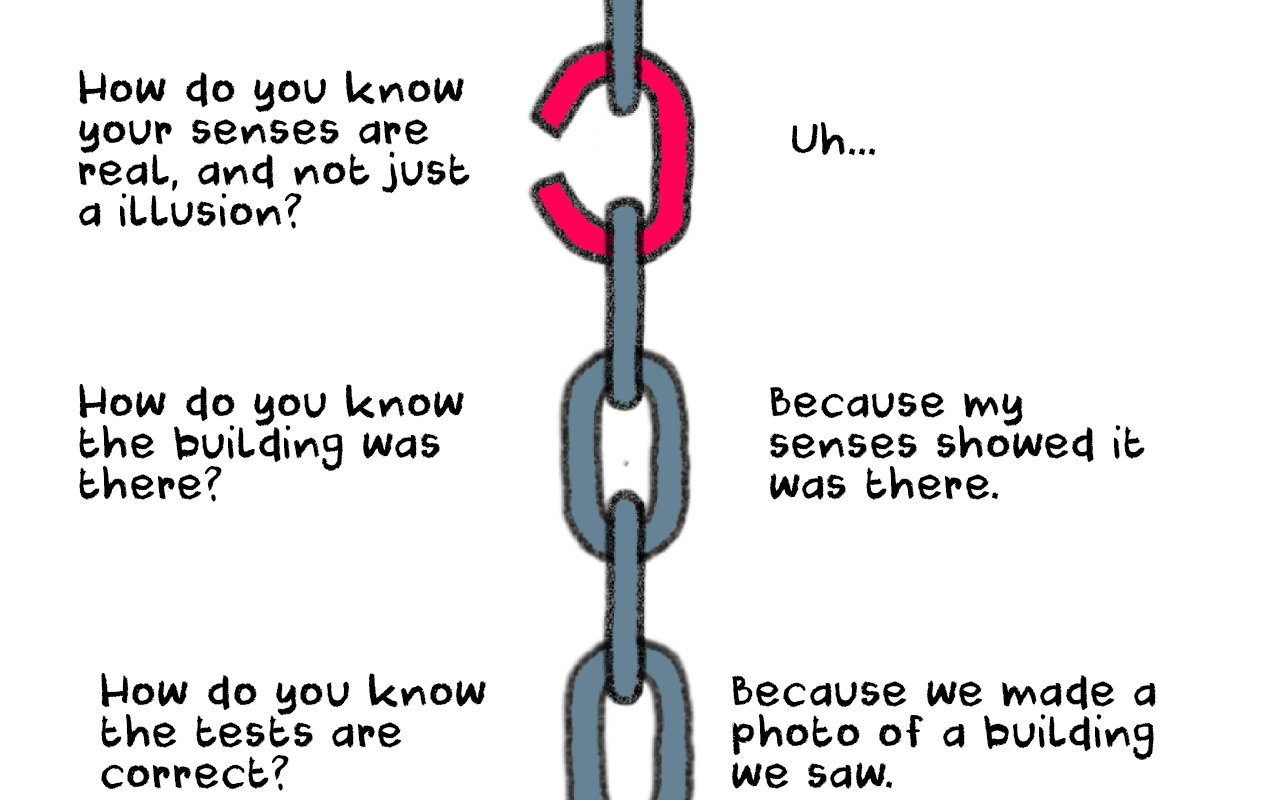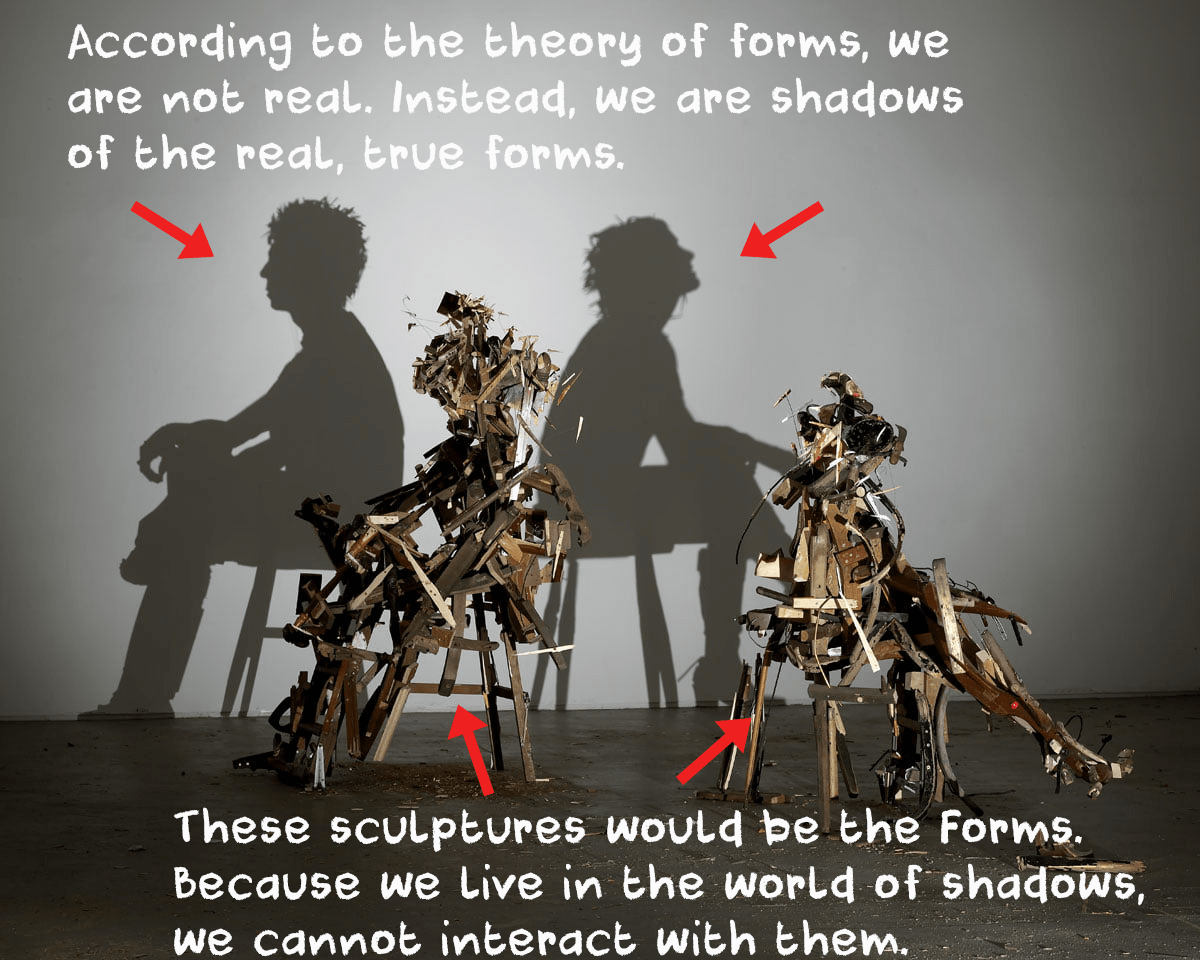A good friend of Socrates, once asked the Oracle at Delphi “is anyone wiser than Socrates?”
The Oracle answered “No one.”
This
greatly puzzled Socrates, since he claimed to possess no secret
information or wise insight. As far as Socrates was concerned, he was
the most ignorant man in the land.
Socrates
was determined to prove the Oracle wrong. He toured Athens up and down,
talking to its wisest and most capable people, trying to find someone
wiser than he was.

What
he found was that poets didn’t know why their words moved people,
craftsmen only knew how to master their trade and not much else, and
politicians thought they were wise but didn’t have the knowledge to back
it up.
What Socrates discovered was that none of these people
knew anything, but they all thought they did. Socrates concluded he was
wiser than them, because he at least knew that he knew nothing.
This
at least is the story of the phrase. It’s been almost 2500 years since
its longer form was initially written. In that time, it has caught a
life of its own and now has many different interpretations.
I know that I know nothing – 5 interpretations
I know that I know nothing, because I can’t trust my brain
One interpretations of the phrase asks if you can be 100% certain if a piece of information is true.
Imagine this question: “Is the Sun real?”
If
it’s day time, the answer is immediately obvious because you can simply
point your hand at the Sun and say: “Yes, of course the Sun is real.
There it is.”
But then, you will fall into something called the infinite regress problem. This means every proof you have, must be backed up by another proof, and that proof too must be backed up by another one.

As
you go down the infinite regress, you will reach a point where you have
no proof to back up a statement. Because that one argument can’t be
proven, it then crashes all of the other statements made up to it.

French philosopher Rene Descartes went so far with the infinite regression, that he imagined the whole world was just an elaborate illusion created by an Evil Demon that wanted to trick him.
As
the Evil Demon scenario shows, the infinite regression will often go so
far down it will challenge whether any of the information entering your
brain is real or not.
Thus, if all the information you’re receiving through the senses is an illusion, then by extension you know nothing.
Counterarguments: Descartes came up with the phrase “I think, therefore I am”.
This puts a stop to the infinite regress since it’s impossible to doubt
your own existence because simply by thinking, you prove that your
consciousness exists.
Another philosophical counter argument is that some statements do not require proof in order to be called true. These are called self-evident truths, and include statements such as:
- 2+2 = 4
- A room that contains a bed is automatically bigger than the bed.
- A square contains 4 sides.
These self-evident truths act as foundations stones that allow knowledge to be built upon.
I know that I know nothing, because the physical world isn’t real
Socrates never left behind any written texts (mostly because he hated writing, saying it would damage our memory). All of the things we know about Socrates comes mostly from Plato, and to a lesser extent, Xenophon.
However,
Plato wrote his philosophy in dialogue form and always used Socrates as
the voice for his own ideas. Because of this, it’s almost impossible to
separate the true Socrates from Plato.
One
interesting interpretation of “I know that I know nothing”, is that the
phrase could actually belong to Plato, alluding to one of his ideas: the theory of forms.
According
to theory of forms, the physical world we live in, the one where you
can read this article on a monitor or hold a glass of water, is actually
just a shadow.
The real world is that of “ideas” or “forms”.
These are non-physical essences that exist outside of our physical
world. Everything in our dimension is just an imitation, or projection
of these forms and ideas.

Another
way to think about the forms, is to compare something that exists in
the real world vs. its ideal version. For instance, imagine the perfect
apple, and then compare it to real world apples you’ve seen or eaten.

The
perfect apple (in terms of weight, crunchiness, taste, color, texture,
smell etc.) only exists in the realm of forms, and every apple you’ve
seen in real life is just a shadow, an imitation of the perfect one.
That
being said, the theory of forms does have some major limitations. One
of them is that a human living in the physical / shadow realm, you can
never know how an ideal form looks like. The best you can do is to just
think what a perfect apple, human, character, marriage etc. look like,
and try to stick to that ideal as much as possible.
You’ll never
know for sure what the ideal looks like. In this sense, “I know I know
nothing” can mean “I only know the physical realm, but I know nothing
about the real of forms”.
I know that I know nothing, because information can be uncertain
A
more straightforward interpretation is that you can never be sure if a
piece of information is correct. Viewed from this perspective, “I know
that I know nothing” becomes a motto that stops you from making hasty
judgement based on incomplete or potentially false information.
This
interpretation is also connected with the historical context in which
Socrates (or Plato) uttered the phrase. At the time, Pyrrhonism was a
philosophical school that claimed you cannot discover the truth for
anything (except the self-evident such as 2+2=4).
From the Pyrrhonist point of view,
you cannot say for sure if a statement is correct or false because
there will always be arguments for and against that will cancel each
other out.
For instance, imagine the color green.

A Pyrrhonist would argue that you cannot be sure this is the color green because:
- Animals might perceive this color differently.
- Other people might perceive the color differently because of different lighting, color blindness etc.
A non-philosopher would just say “it’s green dammit, what more do you need?” and close the problem.
What
makes Pyrrhonists different is that instead of saying “yes this is a
color, and that color is green”, they will simply say “yes, this is a
color, but I’m not sure which so I’d rather not say”.

For
Pyrrhonists however, such a position was not just a philosophical
exercise. They extended this way of thinking to their entire lives so it
became a mindset called epoché,
translated as suspension of judgement. This suspension of judgement
then led to the mental state of ataraxia, often translated as
tranquility.
From the Pyrrhonist point of view, people cannot
achieve happiness because their minds are in a state of conflict by
having to come to conclusions in the face of contradictory arguments.
As
a result, Pyrrhonists chose to suspend their judgement on all problems
that were not self-evident, hoping that thus they will achieve true
happiness.
Ultimately, from the Pyrrhonist perspective, “I know that I know nothing” can mean “truth cannot be discovered”.
I know that I know nothing – the paradox
A
more conventional approach to the phrase is to simply view it as a
self-referential paradox. The most well-known self-referential paradox
is the phrase “this sentence is a lie”.

These pair of drawing hands by M.C. Escher self-reference each other
When
it comes to science and knowledge, paradoxes function as indications
that a logical argument is flawed, or that our way of thinking will
produce bad results.
A more interesting overview of self-referencing paradoxes is the book Gödel, Escher, Bach: An Eternal Golden Braid
by Douglas Hofstader. This book explores how meaningless elements,
(such as carbon, hydrogen etc.) form systems, and how these systems can
then become self-aware through a process of self-reference.
I know that I know nothing – a motto of humility
Socrates lived in a world that had accumulated very little knowledge.
As
a fun fact, Aristotle (who was born some 15 years after Socrates died),
was said to be the last man on Earth to have known every ounce of
knowledge available at the time.
From the perspective of Socrates,
any knowledge or information he did have was likely to be insignificant
(or even completely false) compared to how much was left to be
discovered.

From
such a position, it’s easier to say “I know that I know nothing” rather
than the more technical truth: “I only know the tiniest bit of
knowledge, and even that is probably incorrect”.
The same
principle still applies to us, if we compare ourselves to humans living
200-300 years in the future. And unlike Socrates, we have a giant wealth
of information to dive in whenever we want.
